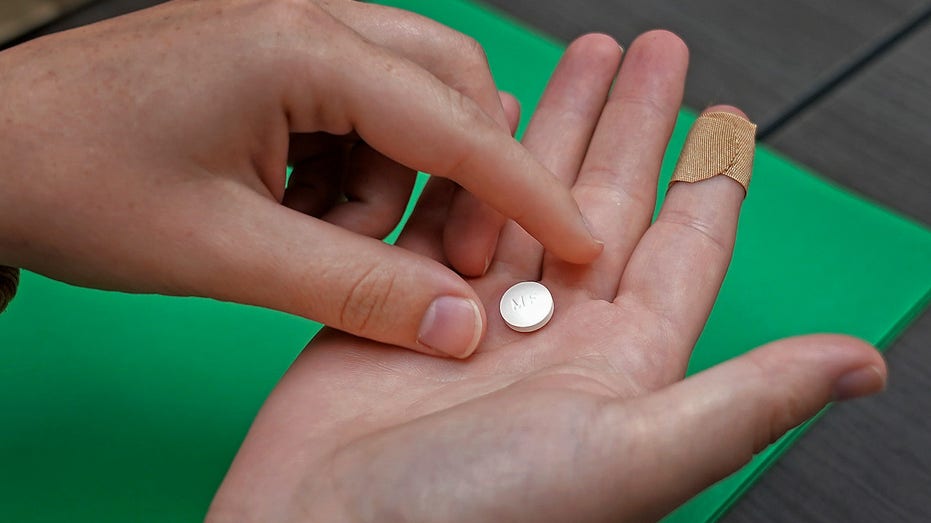A new study finds many women may be surprised by the intensity of the pain they experience from a chemical abortion.The study, published this week in the journal BMJ Sexual & Reproductive Health, surveyed women in the United Kingdom who had taken abortion pills to end a pregnancy and asked them about the pain they experienced. About half of respondents said that the pain they experienced was more than they expected. The majority of respondents (92%) rated their pain at least a 4 out of 10 on the pain scale while over 40% of respondents rated their pain as severe (8-10).Abortion pills, also known as a chemical or medication abortion, involve a two-drug regimen of mifepristone and misoprostol taken to terminate a pregnancy. These pills are the most common abortion method offered by US providers, accounting for over 60% of all abortions nationally, according to the Guttmacher Institute.TEXAS AG SUES NEW YORK DOCTOR WHO ALLEGEDLY PRESCRIBES ABORTION PILLS TO WOMAN IN LONE STAR STATENearly 1600 women responded to the survey, with the majority being between the ages of 20 and 39. About half of respondents reported they had never given birth previously.Two thirds of respondents said they would choose abortion pills again if needed in the future, but 13% of respondents said they would opt for a surgical abortion, with the majority from this group citing the intense pain they experienced as a factor.While some women felt the pain was no worse than period cramps, other women who responded to the survey called the pain far worse than they had anticipated. These women said that the level of pain was “downplayed” or “sugar-coated” in information they were given by medical professionals before taking the pills.”Pain was so much stronger than period pain, it was like having contractions in labour. I’ve given birth three times and the pain really wasn’t too much different from that pain, the cramping contraction pain,” one respondent said.CLICK HERE FOR THE LATEST MEDIA AND CULTURE NEWSResearchers concluded that patients needed to be given “accurate, realistic information on pain” to manage it and support “informed consent for abortion method choice.””Women want more detailed, realistic information to make choices about treatment and to be prepared for medical abortion if that is their preference,” lead study author Hannah McCulloh wrote. “And medical abortion is a very safe and effective choice. This evaluation led us at BPAS to create new patient materials and provide additional staff training, which we are currently in the process of evaluating.”Pro-life activist Abby Johnson, a former Planned Parenthood director who now helps women leave the abortion industry, said the new study exposed a truth about chemical abortions that’s not often talked about.”It’s about time a study like this has been released because women aren’t being told the truth about what happens during a medication abortion or the true extent of the pain they may feel,” Johnson said in a press release.”I hope they will realize that they were never told the truth about their medication abortion and that, unfortunately, their desperation was seen as a moneymaker by the abortion industry. That’s certainly how I felt when I was given the abortion pills and sent on my merry way, only to find out later the absolute horror of what a medication abortion looked like,” she added.The abortion pill was first approved for use in the United States by the U.S. Food and Drug Administration (FDA) in 2000 and can be administered within the first 10 weeks of pregnancy.In June, the Supreme Court ruled against a challenge to the FDA’s regulatory approval process of mifepristone brought by a group of pro-life doctors and medical associations.Lower courts concluded the federal agency did not fully consider the potential health risks to women when revising regulations for mifepristone beginning in 2016. Those revisions — last updated in 2023 — include reducing the recommended dose, allowing use of the drug up to 10 weeks of pregnancy (from seven weeks), approving a generic version and permitting it to be mailed (eliminating in-person doctor visits), among other measures.The Biden administration and the maker of mifepristone asked the Court to reverse an appellate ruling that would cut off access to the drug through the mail and impose other restrictions, even in states where abortion remains legal. In a victory for the Biden administration and abortion rights supporters, the Supreme Court preserved access to the abortion pill, unanimously ruling that challengers to the FDA lacked standing to sue the government. Fox News’ Brianna Herlihy and Melissa Rudy contributed to this report.
/
December 25, 2024
Many women ‘unprepared’ for intensity of pain from chemical abortion, study finds







